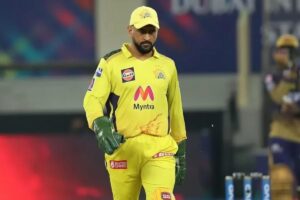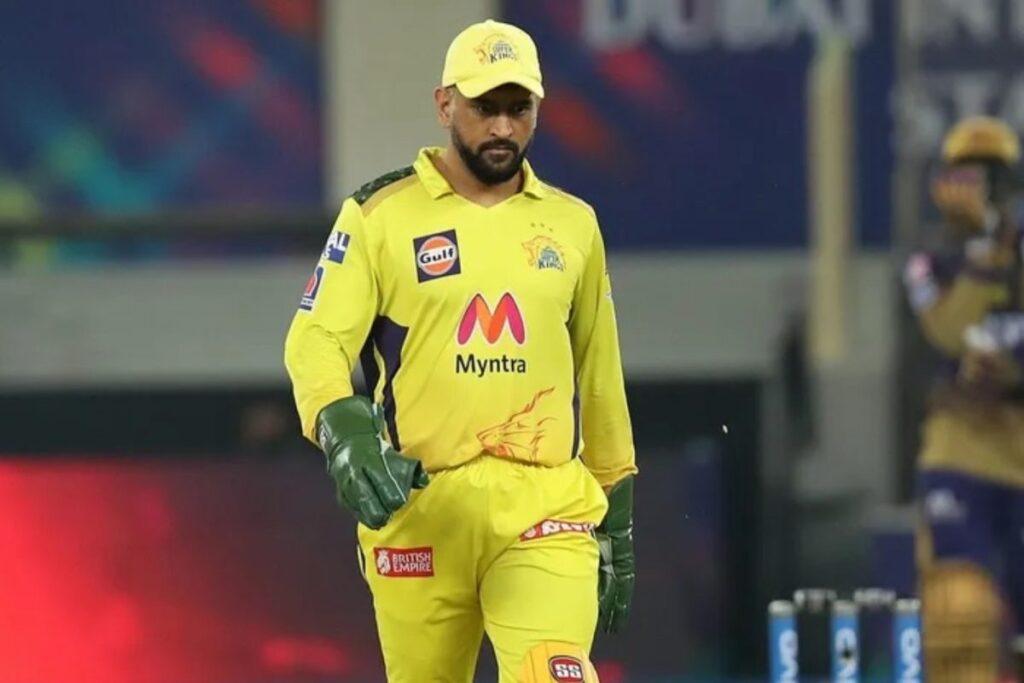
The Mind Maketh the Man
Even more than his gifts in front of the stumps and behind it, it is his mind that sets MSD apart.
By Boria Majumdar
I was at Bhubaneshwar airport when MS Dhoni walked out with just a few balls left of the CSK innings. The television set in front of boarding Gate 1 on the ground floor, which till then had no takers, was all of a sudden the object in demand. Anyone who did not have their mobiles open to Jio Cinema had queued in front of the TV. In fact, the crowd was all of a sudden bigger than the queue in front of security check. All wanted a piece of Mahi.
“Why did he not come earlier?”, a kid asked his father as Dhoni was walking out. Many at Chepauk must have asked the same question. Why Ravindra Jadeja and not Dhoni himself? But therein lies the greatness of the man. Maybe MSD has decided that he will play these impact cameos this IPL. That he can’t sustain for long because he isn’t the same player of old, and hence it is best for the team if he walks out with a few balls remaining and does what he has always done best – hit. Mahi maar raha hai, yet again, is reverberating all over India.
And it is this mind of his, may we say, that sets him apart. The difference between Chennai and Lucknow at the end was 12 runs. The two sixes that MSD hit in his 3-ball stay at the wicket.
Over the years, MSD has done it again and again. In many close encounters, the most famous being the T20 World Cup final in 2007 with Joginder Sharma, and the 2011 World Cup final when he promoted himself in the batting order ahead of in-form Yuvraj Singh and Suresh Raina — much to everyone’s surprise – and took India home.
A third memory, not so firmly etched in the public imagination, is how Dhoni turned the tide in the 2013 Champions Trophy final against England in Birmingham. Defending a modest 129 off 20 overs in a rain-curtailed game, Dhoni was fast running out of options, with Eoin Morgan and Ravi Bopara on a roll. That’s when he turned, counter-intuitively for many experts, to Ishant Sharma, who had been singled out for harsh treatment by the English.
Sitting in the Edgbaston press box, we agreed it was a huge gamble: one more bad over, and it would have been curtains for India. But, to considerable surprise, Ishant picked up two wickets in two balls, and all of a sudden, India had a chance. In another inspired tactical move, Dhoni got the spinners Ravindra Jadeja and Ravichandran Ashwin to bowl overs 19 and 20, teasing the English batsman, far more comfortable against pace, to slog and perish. It worked, and gave MSD the only piece of ICC silverware missing from his and India’s collection.
The reason why that cricketing brain of his processes dynamic, on-field information well is because his calm reduces clutter, which leads to clarity of thinking. This was in telling evidence in the concluding over of the CSK innings, when in a calculated move, he walked in with just balls to spare and hit the two most telling blows of the match. Mark Wood, hero of the opening game for LSG and one of the fastest in the world, could just look on in awe.

The ability to think on his feet and soak up pressure in tight situations served him well as a leader. Almost irrespective of the match situation, Dhoni is a step ahead of the competition.
A senior academic at IIM Kolkata says Dhoni is a favourite B-school case study. Indeed he is. MSD’s modest early life is too well storied to bear repetition, but it’s worth reminding ourselves that it was he who really gave wings to the cricketing aspirations of small-town India, it was Dhoni more than anyone else who gave underprivileged aspirants in India the hope that perhaps they could do it too. Isn’t the IPL all about that? The story of India?
MSD was far from perfect. though. He may not have been as naturally gifted as Tendulkar or as resilient as Gavaskar or as flamboyant as Kapil Dev. Nor was he a stylist with the bat—he was no David Gower or V.V.S. Laxman or Mohammed Azharuddin, whose batting grace people love to wax lyrical about. Nor was he a natural behind the stumps. But he made up for the lack of those gifts in ways that others can only envy.
His mind was and is matchless. And if you measure him simply by his success, then try and beat his three biggest trophies—the World T20 (2007), the ODI World Cup (2011) and the ICC Champions Trophy (2013)—not to forget, India’s ascent, under his leadership, to the No.1 position in the ICC Test rankings.
But even beyond the gifts of mind and body or leadership, the man stands for, and is driven by, a certain process-based work ethic without over-investing himself in the end result. That’s why he was unhappy with his bowlers. They did not follow the process, and the skipper was livid during the prize distribution. This brings a lightness of spirit to his adventures on the field, and lights up the smile that cricket aficionados and fans the world over love to see day in and out. Chepauk loved him last night. We all did. Thala is back where he belongs.




